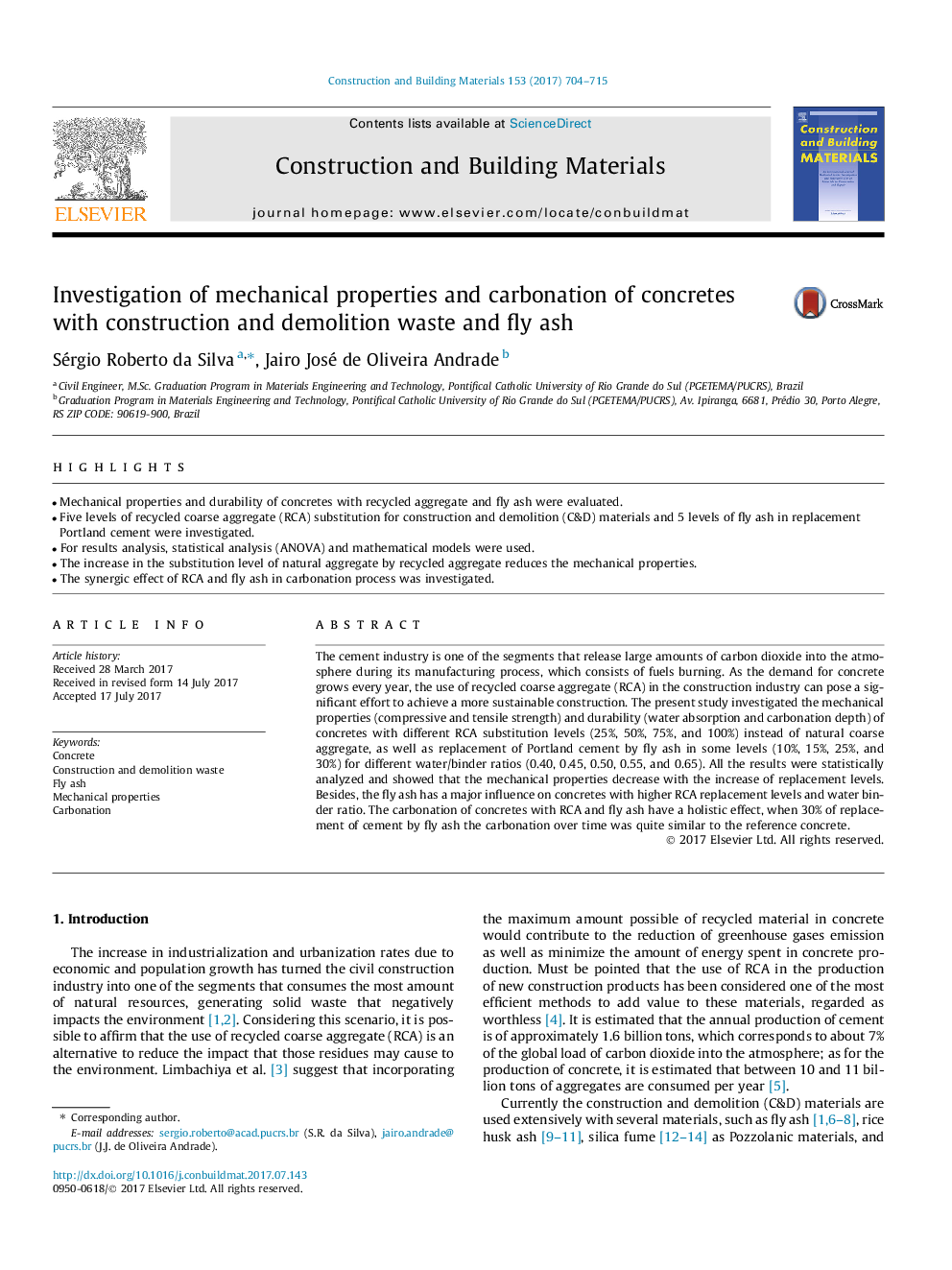| Article ID | Journal | Published Year | Pages | File Type |
|---|---|---|---|---|
| 4913016 | Construction and Building Materials | 2017 | 12 Pages |
Abstract
The cement industry is one of the segments that release large amounts of carbon dioxide into the atmosphere during its manufacturing process, which consists of fuels burning. As the demand for concrete grows every year, the use of recycled coarse aggregate (RCA) in the construction industry can pose a significant effort to achieve a more sustainable construction. The present study investigated the mechanical properties (compressive and tensile strength) and durability (water absorption and carbonation depth) of concretes with different RCA substitution levels (25%, 50%, 75%, and 100%) instead of natural coarse aggregate, as well as replacement of Portland cement by fly ash in some levels (10%, 15%, 25%, and 30%) for different water/binder ratios (0.40, 0.45, 0.50, 0.55, and 0.65). All the results were statistically analyzed and showed that the mechanical properties decrease with the increase of replacement levels. Besides, the fly ash has a major influence on concretes with higher RCA replacement levels and water binder ratio. The carbonation of concretes with RCA and fly ash have a holistic effect, when 30% of replacement of cement by fly ash the carbonation over time was quite similar to the reference concrete.
Related Topics
Physical Sciences and Engineering
Engineering
Civil and Structural Engineering
Authors
Sérgio Roberto da Silva, Jairo José de Oliveira Andrade,
